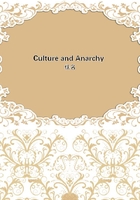
第25章
8 How, indeed, should their overwhelming strength act, when the man who gives an inflammatory lecture, or breaks down the park railings, or invades a Secretary of State's office, is only following an Englishman's impulse to do as he likes; and our own conscience tells us that we ourselves have always regarded this impulse as something primary and sacred? Mr. Murphy lectures at Birmingham, and showers on the Catholic population of that town 'words,' says the Home Secretary, 'only fit to be addressed to thieves or murderers.' What then? Mr. Murphy has his own reasons of several kinds. He suspects the Roman Catholic Church of designs upon Mrs. Murphy; and he says, if mayors and magistrates do not care for their wives and daughters, he does. But, above all, he is doing as he likes;or in worthier language, asserting his personal liberty. 'I will carry out my lectures if they walk over my body as a dead corpse; and I say to the Mayor of Birmingham that he is my servant while I am in Birmingham, and as my servant he must do his duty and protect me.' Touching and beautiful words, which find a sympathetic chord in every British bosom! The moment it is plainly put before us that a man is asserting his personal liberty, we are half disarmed; because we are believers in freedom, and not in some dream of a right reason to which the assertion of our freedom is to be subordinated. Accordingly, the Secretary of State had to say that although the lecturer's language was 'only fit to be addressed to thieves or murderers,' yet, 'I do not think he is to be deprived, I do not think that anything I have said could justify the inference that he is to be deprived, of the right of protection in a place built by him for the purpose of these lectures;because the language was not language which afforded grounds for a criminal prosecution.' No, nor to be silenced by Mayor, or Home Secretary, or any administrative authority on earth, simply on their notion of what is discreet and reasonable! This is in perfect consonance with our public opinion, and with our national love for the assertion of personal liberty.
9 In quite another department of affairs, an experienced and distinguished Chancery Judge relates an incident which is just to the same effect as this of Mr. Murphy. A testator bequeathed 300 l . a year, to be for ever applied as a pension to some person who had been unsuccessful in literature, and whose duty should be to support and diffuse, by his writings, the testator's own views, as enforced in the testator's publications.
The views were not worth a straw, and the bequest was appealed against in the Court of Chancery on the ground of its absurdity; but, being only absurd, it was upheld, and the so-called charity was established. Having, I say, at the bottom of our English hearts a very strong belief in freedom, and a very weak belief in right reason, we are soon silenced when a man pleads the prime right to do as he likes, because this is the prime right for ourselves too; and even if we attempt now and then to mumble something about reason, yet we have ourselves thought so little about this and so much about liberty, that we are in conscience forced, when our brother Philistine with whom we are meddling turns boldly round upon us and asks: Have you any light? --to shake our heads ruefully, and to let him go his own way after all.
10 There are many things to be said on behalf of this exclusive attention of ours to liberty, and of the relaxed habits of government which it has engendered. It is very easy to mistake or to exaggerate the sort of anarchy from which we are in danger through them. We are not in danger from Fenianism, fierce and turbulent as it may show itself; for against this our conscience is free enough to let us act resolutely and put forth our overwhelming strength the moment there is any real need for it. In the first place, it never was any part of our creed that the great right and blessedness of an Irishman, or, indeed, of anybody on earth except an Englishman, is to do as he likes; and we can have no scruple at all about abridging, if necessary, a non-Englishman's assertion of personal liberty. The British Constitution, its checks, and its prime virtues, are for Englishmen. We may extend them to others out of love and kindness;but we find no real divine law written on our hearts constraining us so to extend them. And then the difference between an Irish Fenian and an English rough is so immense, and the case, in dealing with the Fenian, so much more clear! He is so evidently desperate and dangerous, a man of a conquered race, a Papist, with centuries of ill-usage to inflame him against us, with an alien religion established in his country by us at his expense, with no admiration of our institutions, no love of our virtues, no talents for our business, no turn for our comfort! Show him our symbolical Truss Manufactory on the finest site in Europe, and tell him that British industrialism and individualism can bring a man to that, and he remains cold! Evidently, if we deal tenderly with a sentimentalist like this, it is out of pure philanthropy.